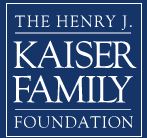Understanding the Medicaid Prescription Drug Rebate Program
(By Rachel Dolan for The Kaiser Family Foundation)
Drug prices are at the center of health policy debates at both the state and federal levels. Medicaid provides health coverage for millions of Americans, including many with substantial health needs. Prescription drug coverage is a key component of Medicaid for many beneficiaries who rely on medications for both acute problems and for managing ongoing chronic or disabling conditions. Without Medicaid, many prescription drugs would be prohibitively expensive to low-income beneficiaries. Both state and federal policymakers are undertaking efforts to control prescription drug costs, and there is renewed policy interest in the Medicaid Prescription Drug Rebate Program (MDRP) as part of these efforts. Policymakers are also currently debating significant changes to payment for prescription drugs through Medicare and commercial insurers that may also have implications for Medicaid and the MDRP as well. This brief explains the MDRP to help policymakers and others understand how Medicaid pays for drugs and any potential consequences of policy changes for the program by answering the following questions: Continue reading brief here…
Notice: The link provided above connects readers to the full content of the posted article. The URL (internet address) for this link is valid on the posted date; medicarereport.org cannot guarantee the duration of the link’s validity. Also, the opinions expressed in these postings are the viewpoints of the original source and are not explicitly endorsed by AMAC, Inc.; the AMAC Foundation, Inc.; or medicarereport.org.

